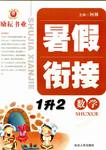题目内容
10.Imagination and fantasy can play an important role in achieving the things we fear.Children know this very well.Fred Epstein,in his book If I Make It to Five,tells a story he heard from one of friends about Tom,a four-year-old boy with a cancer in his back bone.He came through several operations and a lot of pain by mastering his imagination.Tom loved to pretend,and he particularly loved to play superheroes.Dr.Epstein explained that it was actually a brilliant way for his young mind to handle the terrifying and painful life he led.
The day before his third trip to the operating room,Tom was terribly afraid."Maybe I could go as Superman,"he whispered to his mom.Hearing this,the mother hesitated for a while.She had avoided buying the expensive costume (戏装),but finally she agreed.
The next day Tom appeared as the powerful Superman,showing off through the hospital halls and coolly waving his hand to the people greeting him along the way.And Tom,with the strength of his fantasy,successfully made it through the operation.
The power of imagination need not be reserved for children only.we all have the power to use our fantasies to attempt things we never thought possible,to go through those things that seem impossible,and to achieve what we never believed we could.Just as Dr.Epstein puts it,"If you can dream it,you can do it."
It doesn't mean that you should dress as a superhero for your next job interview.But,next time you are tested in a way that seems impossible,imagine what it would take to overcome it.Become the person you need to become to win over your challenge and do it in your mind first.So,let your imagination run wild,and dare to dream.
26.What do we know about Tom?A
A.He was seriously ill
B.He was a dishonest boy.
C.He was crazy about magic.
D.He was Dr.Epstein's patient.
27.What can be inferred about Tom's mother?D
A.She was a rich lady.
B.She refused Tom's request.
C.She wanted Tom to be a superhero.
D.She wanted to get Tom through the pain.
28.When Tom went for the third operation,heB
A.pretended to be painful
B.acted like a superhero
C.appeared in poor spirits
D.argued with his mother
29.In the last paragraph,you are advisedC
A.to go through some difficult tests
B.to wake up from your wild dreams
C.to become a powerful person in your mind
D.to wear expensive clothes for job interviews
30.What is the purpose of the passage?D
A.To tell us an interesting story.
B.To help us make right decisions.
C.To advise us to care about children.
D.To encourage us to use our imagination.
分析 本文为记叙文,通过小男孩Tom通过想象自己为超级英雄的方式战胜病魔的故事,来告诉我们在我们面对害怕的事情或完成具有桃战性的工作中起着重要的作用,并鼓励我们想像力自由驰骋,敢于梦想.
解答 26.答案:A.细节理解题.由第一段最后一句"He came through several operations and a lot of pain"可知,他病得很严重,故选.选项B(他是一个不诚实的孩子)和选项C(他对魔术着了迷)都是无中生有;由第一段第三句"Fred Epstein,in his book If I Make It to Five,tells a story he heard from one of his friends about Tom"可知,有关Tom的事情是Dr.Epstein从他的一个朋友那里听来的,因此可排除选项D(他是Dr.Epstein的病人).
27.答案:D.推理判断题.由第三段第三四句"Hearing this,the mother hesitated for a while.She had avoided buying the expensive costume(戏装),finally she agreed."可知,她并不富有,但最终还是同意了Tom的请求,为他购买昂贵的戏装,由此推断,她是希望Tom能度过痛苦关.由"had avoided buying the expensive costume"可排除选项A;由finally she agreed可排除选项B;她同意为他购买昂贵的戏装其目的不是希望他真正成为超人,故排除选项C.
28.答案:B.细节理解题.由第四段第一句"Tom appeared as the powerful Superman,showing off through the hospital halls and coolly waving his hand to the people greeting him along the way."可知,他的行为就像是一个超人.
29.答案:C.细节理解题.由最后一段的第一句可排除选项D;选项A(经历一些困难的测试)和B(从不羁梦中醒来)含文中的一些字眼,其实是断章取义;由第三句"Become the person you need to become to win over your challenge and do it in your mind first."可知,选项C(要成为一个内心强大的人)正确.
30.答案:D.写作目的题.由文章首句"Imagination and fantasy can play an important role in achieving the things we fear."和最后一段的最后一句话"So,let your imagination run wild,and dare to dream."可知,作者写这篇文章的目的是鼓励我们运用我们的想象力.
点评 此类文章的特点是以时间的先后或事件的发展为主线,空间或逻辑线索贯穿文章始终,脉络清楚,可读性较强.做题时要弄清楚人物传记类文章的特征和写作手法,抓住题干关键词,采用寻读的方法查找细节并进行推理判断.

 励耘书业暑假衔接宁波出版社系列答案
励耘书业暑假衔接宁波出版社系列答案--Peter told me that I've been chosen to attend the national competition on behalf of our
school.( )
| A. | What's coning up | B. | So what | ||
| C. | How are things going | D. | How come |
| A. | mustn't | B. | won't | C. | mightn't | D. | shouldn't |